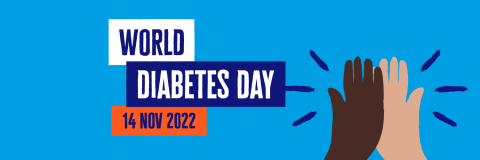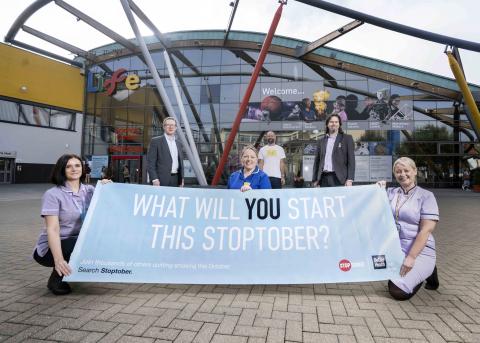28 May 2020
| | 5 min readConcern at study showing the poor are more at risk of alcohol-related violence
Concern has been expressed at a major new report showing people in the poorest areas are more at risk of alcohol-related violence.

Balance says the report – by the Institute of Alcohol Studies – is “worrying for the region” and ties in with a separate survey showing most people in the North East link alcohol with violence and crime.
Figures for the North East already show the region experiences as many as 125,000 alcohol-related crimes a year, including 26,000 thefts or robberies, 74,000 incidents of criminal damage and nearly 25,000 violent incidents.
The new IAS report, ‘Inequalities in victimisation: alcohol, violence, and anti-social behaviour’ looked at several types of alcohol-related violence. It found that for domestic violence, the most deprived groups experience 14 times as many alcohol-related incidents every year, compared with the least deprived. This has taken on new urgency in recent weeks, as reports of domestic violence incidents have risen dramatically under the Covid-19 restrictions. The IAS report also revealed most deprived groups were seven times more likely to experience alcohol-related violence from someone they know and were most likely to be on the receiving end of ‘high frequency’ alcohol-related anti-social behaviour in the last year. Of those who experienced alcohol-related anti-social behaviour in the lowest socioeconomic groups, as many as half were victims of this on a weekly basis.
A Balance Public Perceptions Survey, a major annual survey of over 1,000 people in the region, reveals that:
- 74% associate alcohol with domestic abuse
- 63% associate alcohol with sexual assault
- 68% associate alcohol with violent crime
- 82% associate alcohol with anti-social behaviour
Colin Shevills, Director of Balance the North East Alcohol Office, said: “These are extremely worrying and sobering figures - the North East experiences some of the worst alcohol-related harms in England, costing our region over £1bn a year and creating significant health inequalities.
“It is clear from the report that people living in poorer areas are not only more likely to become ill from alcohol, but to also become victims of alcohol-related crime.”
“We can’t just stand by and watch alcohol causing such intense levels of harm in our poorest communities. Alcohol is too cheap, too affordable and too heavily promoted and for some, the COVID-19 crisis has worsened the harm it causes.
“We need urgent action to save our poorest neighbourhoods from a perfect storm caused by the widespread availability of cheap alcohol. We need investment in treatment services. We need investment in domestic abuse services. Local communities need extra powers to control the number of places selling alcohol. And most of all England needs to follow the example of Scotland and Wales and introduce a minimum unit price (MUP) for alcohol.
“We already have the evidence that a 50p MUP would benefit the poorest most in every locality in the North East, with 4,380 fewer crimes a year and almost 2,000 deaths prevented in the next 20 years across the region. If the Government is serious about ‘levelling-up’ as we emerge from the Covid-19 crisis, they must tackle the harms alcohol is causing in our most deprived communities.”
Cllr Clare Penny-Evans, Chair of Safe Newcastle and Newcastle City Council cabinet member for Climate Change and Communities, said: “Safe Newcastle recognises the issues linked to alcohol upon individuals, their families and the wider community and are already advocating for the introduction of MuP, having previously written to government about this.
“Reducing the availability and accessibility of alcohol is key and will significantly help the pressure placed on health, social care and criminal justice partners.”
The region's Police and Crime Commissioners are also concerned about the impact of alcohol-related crime on their most deprived communities.
Stephen White, Acting Police, Crime and Victims’ Commissioner for Durham said: “The need for action is now urgent following these new figures showing the higher harm caused by alcohol in our poorest communities. The issue is particularly worrying for the North East of England where we suffer higher rates of alcohol-related crime as well as alcohol related deaths and hospital admissions.
“Currently, some of the most vulnerable people in our society are being left behind; I want to make sure that victims of such crimes are getting the support they need to recover, and offenders are addressing the underlying causes of their offending so that those who need alcohol treatment are receiving the specialist support they require. We all have a duty to work together to make a positive impact on this problem by refocusing existing efforts in order to reduce the harms caused by alcohol on society and on emergency services.”
Kim McGuinness, Northumbria Police & Crime Commissioner, said: “In Northumbria we are very aware of the risk that alcohol misuse can have on our communities, especially the most vulnerable. Through my Violence Reduction Unit we have committed to alcohol dependency prevention as one of the key elements of our serious violence strategy, and will continue to support those in need.
“Alcohol can have devastating impacts on individuals, families and loved ones, and is too often the factor in a range of crimes. No child should have to be brought up witnessing alcohol misuse, and no community should have to be affected by alcohol-related crimes. We will work with services to provide a support network for those in need and ensure suitable interventions are available.
“In these challenging times people can often feel isolated and alone, but please remember that we are here to help and help is available.”
Report author Lucy Bryant, Research and Policy Officer at the Institute of Alcohol Studies, said: "Alcohol-related violence accounts for two fifths of all violence in England and Wales today, and it is the most deprived groups bearing this burden to the greatest extent. It is vitally important policymakers take action to address not only this disparity in victimisation, but the structural drivers that lie behind it."
If you would like to give us feedback on our website, please complete this short online form.







